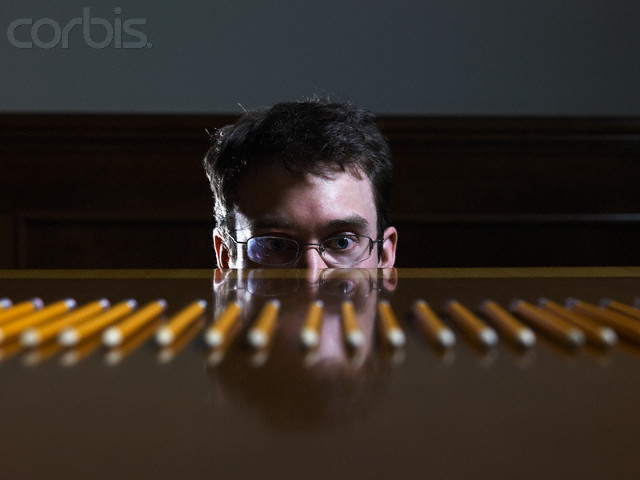photo: Hans Neleman/Corbis
By David Colburn
Staff Writer
There is a great chance that the reader has seen or used the acronym OCD many times in his or her life, with only a base knowledge of its meaning. What does it in fact mean to have obsessive compulsive disorder? How does it affect those afflicted with the condition?
According to the National Institute of Mental Health, OCD is characterized by intrusive thoughts that cause anxiety and repetitive behaviors, known respectively as obsessions and compulsions. Repetitive behaviors often include hand-washing, counting, and cleaning in order to prevent or temporarily defuse obsessive thoughts. Although the “relief” experienced from such behaviors is only short-term, the increase in anxiety from not engaging in said behaviors can be immense.
The National Institute of Mental Health describes many of the common signs of obsessive compulsive disorder; “persistent, unwelcome thoughts or images”, “the urgent need to engage in certain rituals”, and feelings of doubt are among the most significant attributes.
As stated by healthcentral.com, obsessive compulsive disorder is one of the most common mental illnesses in the United States, with one in every 50 adults formally diagnosed and one in 25 adults that experience temporary incidents. Many individuals never seek treatment options, which include cognitive-behavioral therapy and medication, due to a sense of shame, embarrassment, or a legitimate lack of resources. Healthcentral.com also confirms that depression and other social issues can occur when OCD is not properly diagnosed or treated.
The condition has been the subject of many studies over the past few years. Reuters reported that a study mapping the benefits of deep brain stimulation (DBS) on severe OCD patients was completed as recently as October of 2010. Researchers at Amsterdam University’s Academic Medical Center noted “a dramatic reduction in symptoms” among 16 patients after using a DBS system of electrodes, which involves the implant of a “generator into the wall of the chest to send electrical pulses to electrodes that target specific areas deep inside the brain”. Symptoms of severe OCD decreased around 50 percent on average within the study.
Other psychological issues and disorders have been linked to obsessive compulsive disorder in recent studies. According to the Royal College of Psychiatrists, one in five people with OCD are also potentially afflicted with some type of eating disorder. Dr. Lynn Drummond related the following statement on the matter: “This study suggests that clinicians should be made aware of the high prevalence of disordered eating in patients with all anxiety disorders as well as OCD.”
For additional information on the October 2010 DBS study: http://www.reuters.com/article/2010/10/04/us-brain-ocd-medtronic-idUSTRE69357X20101004
For additional information on the study comparing obsessive compulsive disorder with eating disorders:
http://www.rcpsych.ac.uk/press/pressreleases2009/disorderedeating.aspx




